Melting Snow
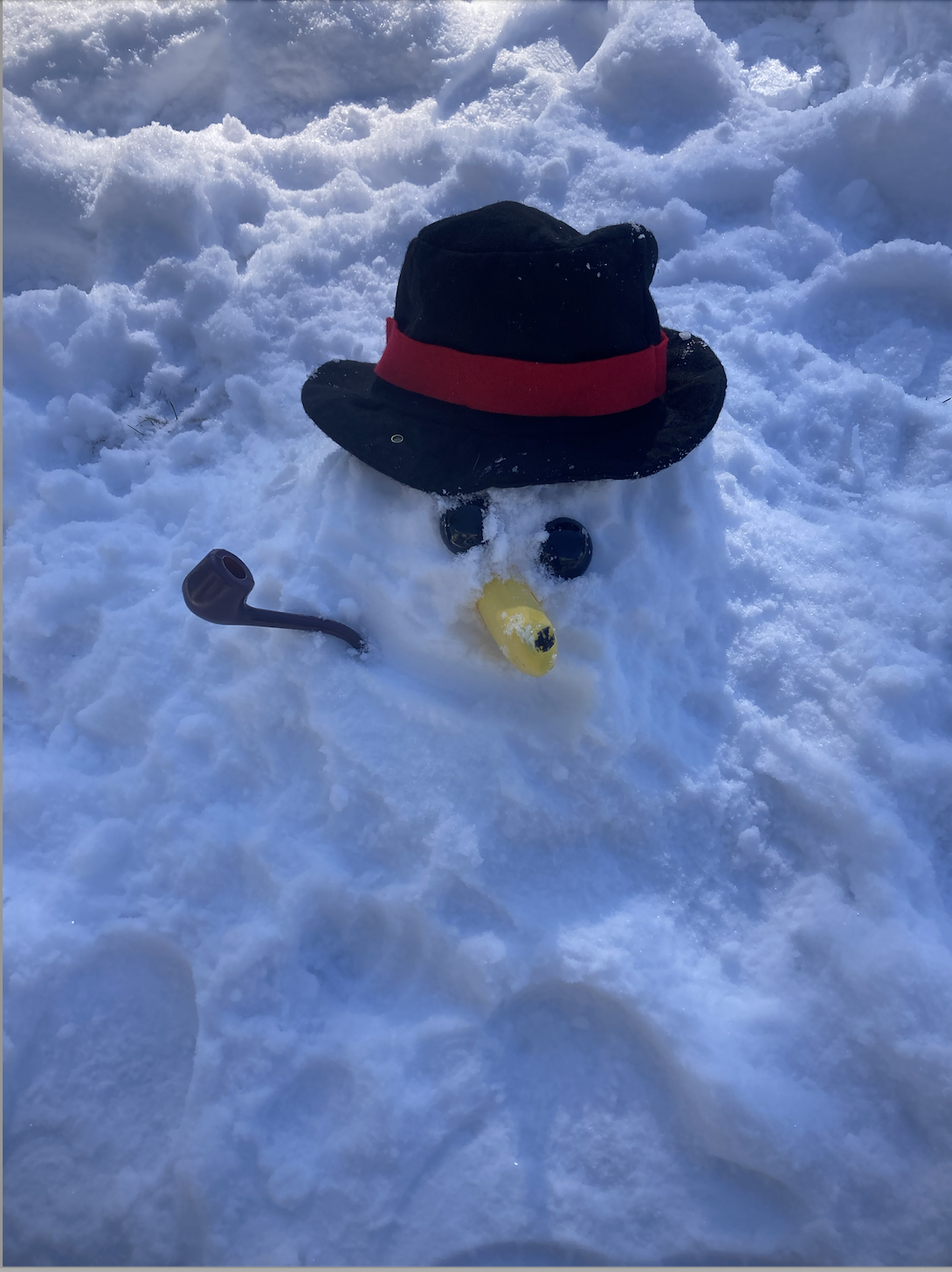
It was the snowiest winter in recent memory and here in my part of the Northeast, the snow is finally starting to melt. Glimmers of grass suggest that warmer days are ahead, but we know that there might be many unpredictable turns before we settle into spring. This is how I feel about my longer winter write - the time I have spent burrowed at home working on the proposal for my next manuscript. I'm in a place where I can see the possibilities, but I know that there is still so much more work to be done. It's something I have been reflecting upon this month.
Falling and Failing
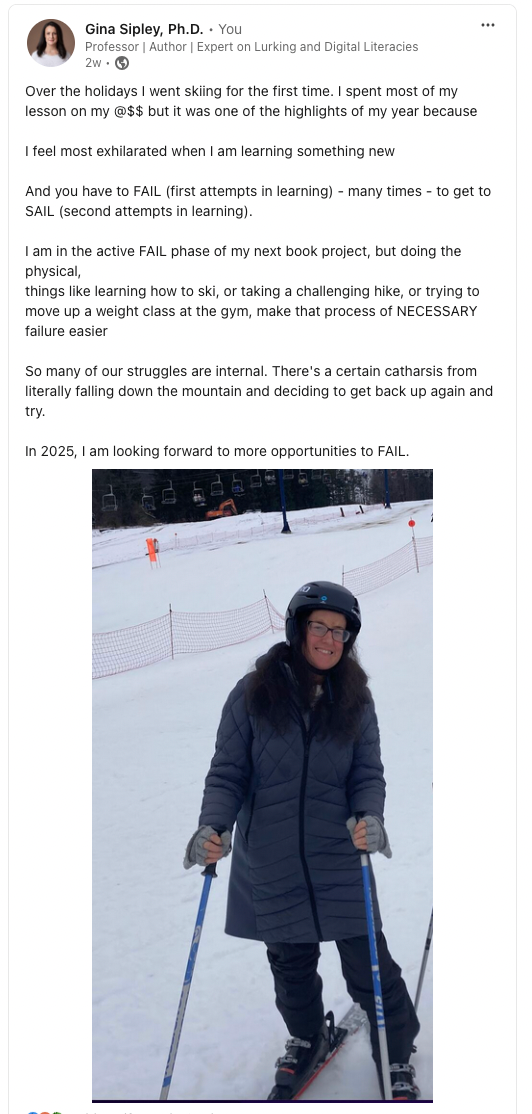
Even though I teach writing and I tell students that it is their duty to make a mess, that if the first draft isn't messy, they are doing something wrong, it is still very hard advice to live by.
Perplexity AI
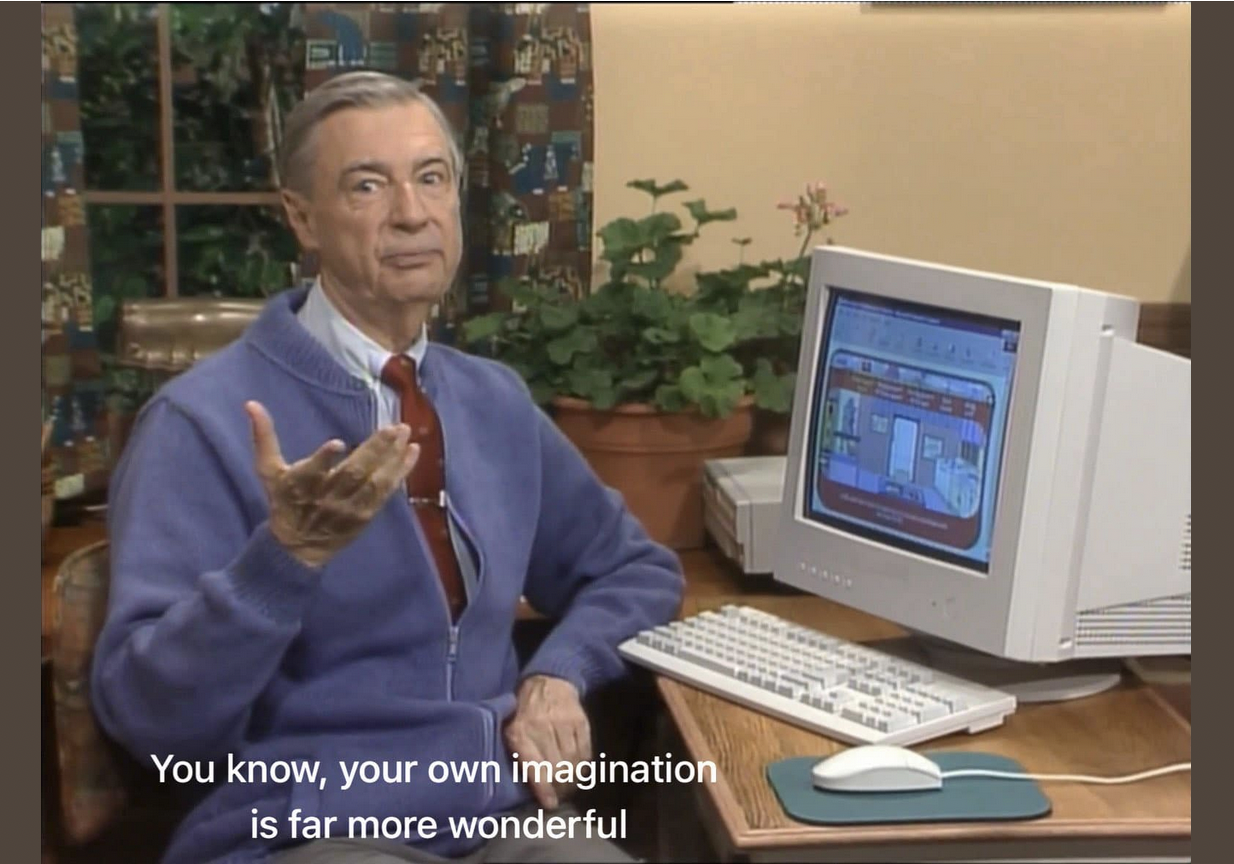
Very online people have been sharing this meme as a response to their feelings about AI and creativity. In the original quote from Mr Rogers Neighborhood, Fred Rogers tells his viewers, "You know, your own imagination is far more wonderful than any computer could ever be."
It's important to remember that the computer program itself was created by somebody (or more specifically a team of somebodies) who used their imagination to build the tools that fascinate us. If we exclusively rely on their digital tools then our own potential for originality wanes. But if we use their tools as an entry point and build from it, then we are doing nothing different than all the great artists and writers who came before. Nothing is built in isolation.
This is a distinction I try to model this with my students. PerplexityAI is one of my new favorite tools because it uses natural language processing, rather than keyword search, to display information. This means that when you perform a search, you can pose a question and receive a footnoted response in full sentences. It uses slightly different criteria from Google's algorithm to select search results and can be trained to only cull from specific kinds of sources (ex: peer reviewed, social media posts and comments, video, etc).
Could it write a paper for you? Probably not. GPT is better suited for that task, lol*
But what I have seen it do for my students is give them the confidence to pursue more complicated research questions, because the footnoted natural language processing format makes it easier to synthesize the data.
Nothing is a panacea. Just like Google contains bias in their search results, Perplexity AI does as well. Remember: all these tools are built by humans who carry their biases with them into the development process. When we query, we need to remain vigilant about the potential biases of the results we retrieve.
* This is not an endorsement of using GPT for plagiarism, but rather an acknowledgement that each AI tool has specific strengths. In all cases, your imagination is better than any paper GPT could write for you.
The Message and Internet Lurking
I finally had a chance to read Ta-Nehisi Coates' The Message, which explores how stories and myths about cultures are developed. Nowhere in his book does Coates explictly discuss internet lurking, but the second section of The Message shares how his viral article "The Case for Reparations" is adopted by high school teachers, some of whom face disciplinary action from their local school boards. While meeting with these teachers, he learns that most uncovered his work through social media, specifically Twitter (before the transition to X).
Receptive reading, a term I use in Just Here For the Comments, explores how we lurk to learn and how we scroll through our feeds to better understand the perspectives of people with differing world views. As folks jump ship from X, and now the Meta platforms (Facebook, Instagram) and preemptively stroll away from TikTok, we're heading into an age of niche social media. By this I mean platforms with a more narrow focus and view (think Bluesky and TruthSocial) rather than the monolithic networks of community shared in the early days of social media. This means that our lurking will be less voracious; we are less likely to stumble upon ideas that challenge our worldview. How will the message(s) of the next year (or four or more) be shared if we're all on different platforms?
As Seen On Facebook, Instagram, and LinkedIn
My college did a fun faculty profile on me for their social media accounts.
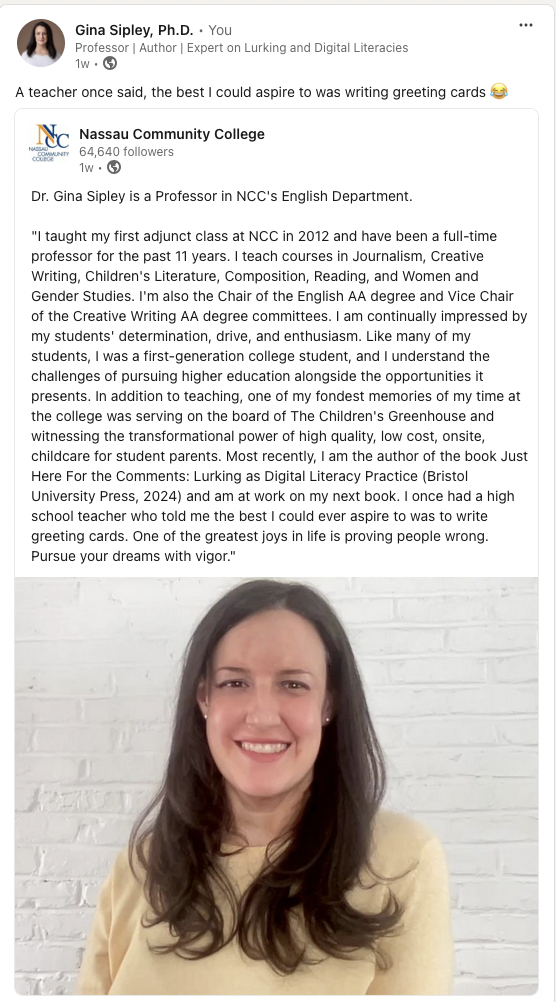
Wishing you warmer days ahead. Thanks for walking beside me.
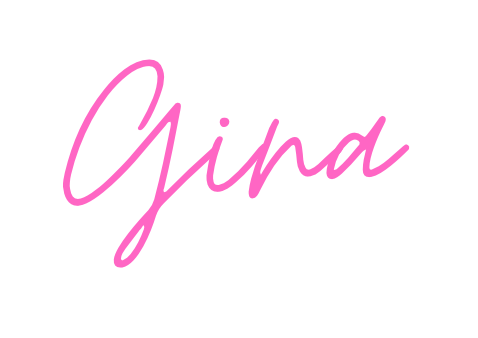
If you know someone who might be interested in receiving this newsletter, please forward and encourage them to subscribe.
